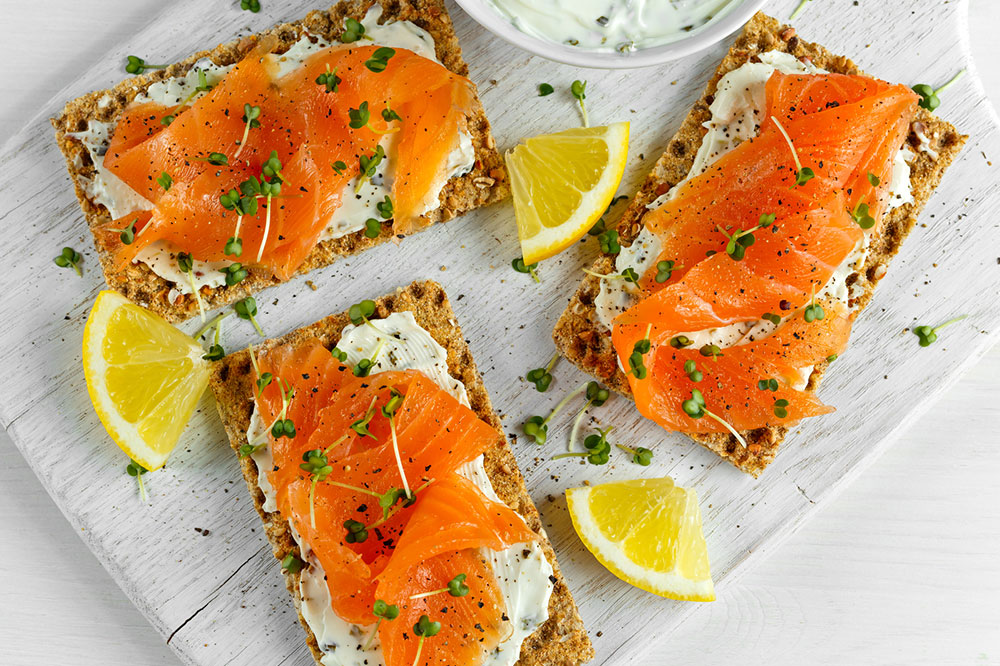
Foods to Eat to Help Eczema
Atopic dermatitis or eczema is an inflammatory skin disease that can lead to rashes, skin irritation, patches, and blisters. While there is no single diet plan that does wonders for everyone with eczema, some foods can prevent a flare-up and some that can make it worse. Here are some such foods worth knowing about.
Fatty fish
You may have long heard about the many benefits of including fatty fish in your diet. And they are true because such type of fish can help prevent an eczema flare-up too. Fatty fish contain omega-3 fatty acids that can help control inflammation and save you from eczema’s flare-up. You should consume fishes such as herring and salmon. You can take omega-3 supplements instead. Experts suggest taking 250mg of omega-3 fatty acids daily to prevent eczema flare-up, ideally from fish.
Quercetin
Quercetin is a plant pigment or flavonoid responsible for giving vegetables, fruits, and flowers their distinct color. Quercetin is also considered as one of the best antihistamines and antioxidants. Hence, it is often used to reduce inflammation and high levels of histamine in the body. People with eczema can consume foods high in quercetin as it can help prevent flare-ups. Foods such as broccoli, apples, kale, blueberries, spinach, and cherries are excellent sources of this flavonoid.
Probiotics
Probiotics help to strengthen your immune system and so can help you if you have eczema. Therefore, if you have eczema, consuming foods that are rich in probiotics might help as it will prevent reaction or flare-ups. There are many probiotic-rich foods out there, including soft cheeses, tempeh, sourdough bread, unpasteurized sauerkraut, miso soup, kefir, and naturally fermented pickles. You can aim to eat some form of probiotics daily, so you are safe from that irritating itch.
Certain diets
There are numerous diets available today that you can try to get your eczema under control. But as eczema can affect people differently, not all these diets may be suitable for all. The Mediterranean diet encourages eating fish, vegetables, healthy fats, fruits, and red wine. The anti-inflammatory diet focuses on avoiding foods that can lead to inflammation instead of eating a diet rich in fiber foods. The other popular diets are the elimination diet and the dyshidrotic diet. The dyshidrotic diet is for people with dyshidrotic eczema and the elimination diet can help people identify triggers.
Food allergens
If you know you have a food allergy, make sure you don’t consume that food under any circumstances because it will only worsen your condition. You should read labels and ensure you always order foods that don’t contain those you are allergic to. Common food allergies include soy, dairy, wheat, peanuts, tomatoes, gluten, citrus fruits, tree nuts, and eggs. You might have a food sensitivity that you are not aware of. In this case, maintaining a food diary can help you write what you ate, in what quantities, and when.
Artificial and processed foods
Eczema can be easily worsened by consuming foods that have artificial ingredients added to them. Moreover, processed foods can cause eczema flare-ups too. You should stay away from foods that contain trans fats, artificial sweeteners, artificial coloring, high fructose corn syrup, and MSG. These foods can trigger your eczema as they have the potential to cause weakening of your immune system and upsetting your digestive system. When you consume them, they can lead to inflammation.


